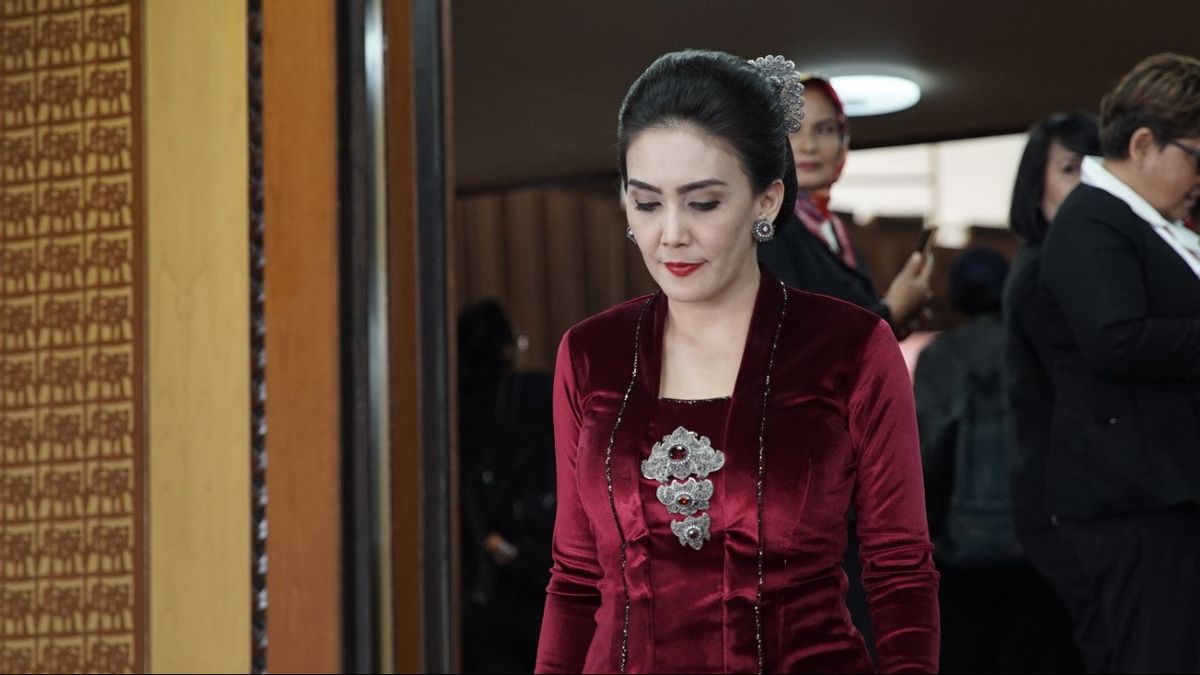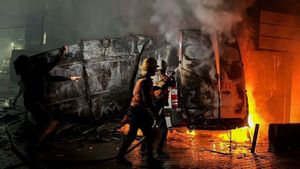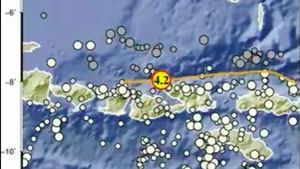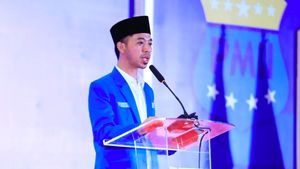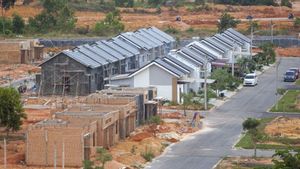JAKARTA - The PDI-P faction of the DPR RI has rotated the position of head of the Council's Apparatus (AKD). One of them is removing Rieke Diah Pitaloka as Deputy Chairman of the Legislative Body (Baleg) of the DPR RI.
PDIP Faction member Hendrawan Supratikno confirmed the change. He added that hearing information that Rieke would be replaced by a member of Commission III of the DPR RI, M. Nurdin. However, the stipulation has not been implemented in Baleg.
"There is no stipulation in Baleg. We are patient for one or two days," Hendrawan told reporters, Wednesday, July 8.
Even so, he emphasized that this rotation is a common thing that is often done. "This is a regular rotation, like in the past trial I was rotated from BAKN to Baleg," he said.
It is known that Rieke's removal took place in the midst of a polemic on the Pancasila Ideology Policy Bill (HIP) which was a draft initiative from the DPR.
Regarding this draft, Minister of Law and Human Rights (Menkumham) Yasonna Laoly said the government has 60 days or two months to respond to the draft through a Presidential Letter (Surpres) since this legislation was proposed and responded to by the Indonesian Parliament.
The Indonesian Ulema Council (MUI), for example, through its edict highlighted several things such as the exclusion of TAP MPRS Number 25 / MPRS / 1966 of 1966 concerning the Prohibition of Communism / Marxism-Leninism in the draft law.
"We deserve to suspect that the drafters of the HIP Bill are elements who want to revive the understanding and the Indonesian Communist Party. Therefore, it should be investigated by the authorities," said MUI as quoted from the announcement of the Central MUI and MUI throughout the Indonesian provinces.
In addition, elements in the draft law are considered to be obscure and deviate from the meaning of Pancasila. One of them is in the Trisila and Ekasila sections which are considered as an effort to divide Pancasila.
This is contained in Article 7 of the HIP Bill which reads:
Paragraph (1) The main characteristics of Pancasila are justice and social welfare with a family spirit which is a combination of the principles of divinity, humanity, unity, democracy / political and economic democracy in one unit.
Paragraph (2) The main characteristics of Pancasila are in the form of trisila, namely: socio-nationalism, socio-democracy, as well as cultural divinity.
Paragraph (3) Trisila as referred to in paragraph (2) is crystallized in ekasila, namely mutual cooperation.
In its announcement, MUI said that squeezing Pancasila into Trisila and Ekasila was an attempt to obscure the meaning of Pancasila. "And covertly wanting to cripple the existence of the first precept," they wrote.
Apart from MUI, several observers considered the discussion of this draft law should be stopped. According to researcher of the Forum for the Concerned Parliamentary Community (Formappi), Lucius Karus said, the DPR initiative bill seemed to want to be completed sooner than other bills included in the 2020 Priority Prolegnas list.
The English, Chinese, Japanese, Arabic, and French versions are automatically generated by the AI. So there may still be inaccuracies in translating, please always see Indonesian as our main language. (system supported by DigitalSiber.id)
